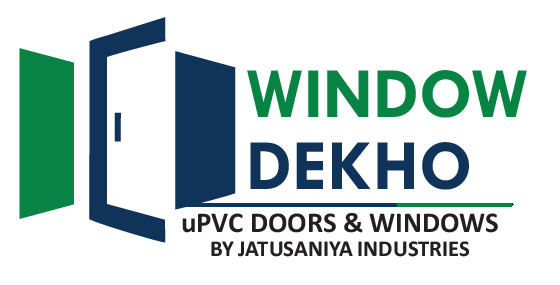Embracing Sustainability: The Eco-Friendly Features of uPVC Windows
In today’s world, environmental consciousness has become vital in various industries, including construction and home improvement. Regarding windows, uPVC (unplasticized polyvinyl chloride) is an eco-friendly choice. In this blog, we will explore the sustainable attributes of uPVC windows and how they contribute to a greener and more sustainable future.
- Recyclability:
One of the significant eco-friendly features of uPVC windows is their recyclability. uPVC can be recycled multiple times without losing its inherent properties. At the end of their life cycle, uPVC windows can be transformed into new products, minimizing waste and conserving resources. - Energy Efficiency:
uPVC windows are renowned for their excellent thermal insulation properties. By effectively trapping heat inside during winter and reducing heat transfer during summer, uPVC windows help optimize energy consumption. This reduces reliance on heating and cooling systems, lowering energy bills and decreasing carbon emissions. - Reduced Environmental Impact:
The manufacturing process of uPVC windows has a lower environmental impact than other window materials. uPVC profiles require less energy and water during production, resulting in a smaller carbon footprint. Choosing uPVC windows over alternatives contributes to sustainable resource management and a cleaner environment. - Durability and Longevity:
uPVC windows are known for their durability and longevity. They resist rot, corrosion, and fading, requiring minimal replacements. This extended lifespan reduces waste generation and conserves raw materials that would be used to manufacture new windows. - Low Maintenance:
Maintaining uPVC windows is hassle-free and requires minimal resources. Unlike wooden windows that need regular painting or metal windows that may rust, uPVC windows only require occasional cleaning with mild detergent and water. This simplicity of maintenance reduces the use of harsh chemicals and contributes to a healthier living environment. - Sound Insulation:
In addition to thermal insulation, uPVC windows also offer excellent sound insulation. They help reduce noise pollution, creating a peaceful and comfortable indoor environment. This feature is particularly beneficial for homes in busy urban areas or near airports, contributing to a better quality of life.
Conclusion:
As we strive to build a sustainable future, uPVC windows are a favorable choice for eco-conscious homeowners. Their recyclability, energy efficiency, reduced environmental impact, durability, low maintenance, and sound insulation properties make them an ideal option. By opting for uPVC windows, we contribute to a greener planet, conserve resources, and enjoy the benefits of a comfortable and eco-friendly home. Let’s embrace sustainability and make a positive impact with uPVC windows.
